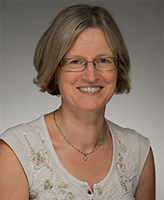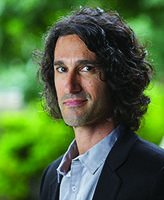 Celia Deane-Drummond
Celia Deane-Drummond
 Agustín Fuentes
Agustín Fuentes
Celia Deane-Drummond, professor of theology, and Agustín Fuentes, professor and chair of the Department of Anthropology, have been awarded $60,000 by the John Templeton Foundation to convene invited scholars to explore the intersection of wisdom, humility, and grace in human evolution. An advanced symposium, entitled “Humility, Wisdom, and Grace in Deep Time: A Conversation between Theology and Evolutionary Anthropology,” will be held in Stellenbosch, South Africa (January 19-22, 2017), assembling world-class scholars from the U.S., U.K., Europe, and Africa.
The big question to be addressed in this project allies to two Templeton-funded projects—the Evolution of Wisdom and Human Distinctiveness projects—that ask ‘where did wisdom come from and how did it begin?’
“In this new endeavor, we are asking, ‘What might be the relationship between the virtues of wisdom and humility and could the latter be tracked in the evolutionary record along with wisdom?’” said Deane-Drummond.
Across scholarly disciplines, there are common threads that define wisdom as the complex decision-making capacity for navigating social networks and dynamic niches. For this project, humility is defined as the capacity for openness to the other and right assessment of one’s capabilities.
“We postulate that humility is a prerequisite for the full development of wisdom,” Deane-Drummond explained. “And while we’ve developed a reasonable idea of how wisdom could be tracked in the evolutionary record, one of the purposes of this symposium is to discuss whether there are distinctive, perhaps ‘advanced’ forms of wisdom that are associated with humility so as to leave their mark in the evolutionary record.”
Symposium participants will submit papers leading up to the conference, thereby laying the foundation for the conversation and identifying the technical foci of the discussion. Deane-Drummond and Fuentes expect the symposium to enhance the scholars’ individual research efforts and lead to a collaborative publication.
The choice to host the symposium in South Africa was intentional, as this region of the world is considered one of the early sites of human origins. The scholars will visit archeological sites where the latest discoveries about the evolutionary history of Homo sapiens are unfolding.
Notre Dame International has also awarded a Global Collaboration Initiative grant to support the Humility, Wisdom, and Grace symposium. The event falls under GCI’s strategic mission of fostering collaboration between Notre Dame researchers and scholars across the globe.
The symposium is being organized by the Center for Theology, Science and Human Flourishing of which Deane-Drummond is the inaugural director. This effort advances the mission of the center, which is to launch a new wave of transdisciplinary research at the intersection of theology and science.
Notre Dame provides the right environment for a fruitful dialogue between these disciplines, building upon the Church’s long tradition of being open to the engagement of faith and reason, in which the Center hopes to follow, said Deane-Drummond.
Originally published at ctshf.nd.edu.